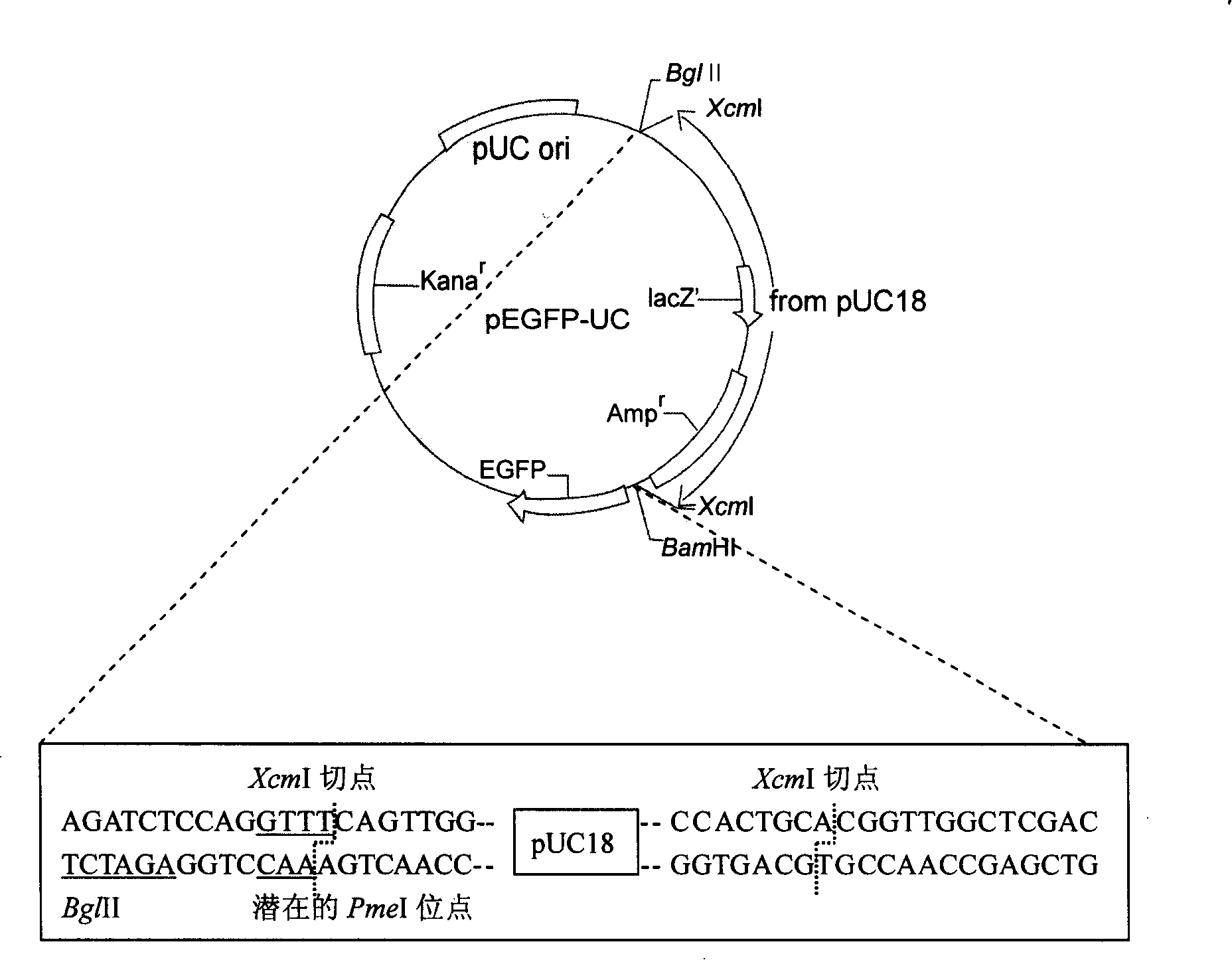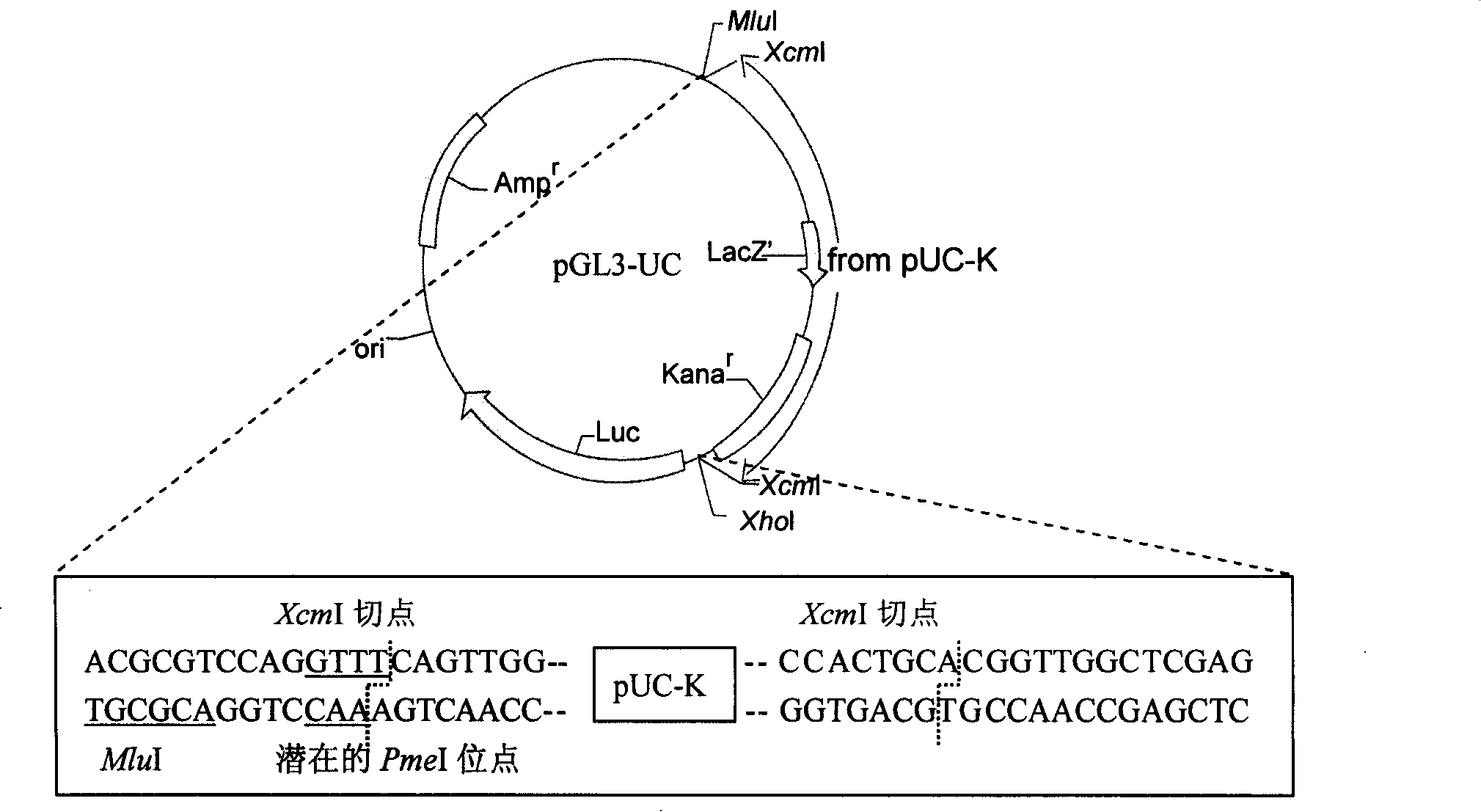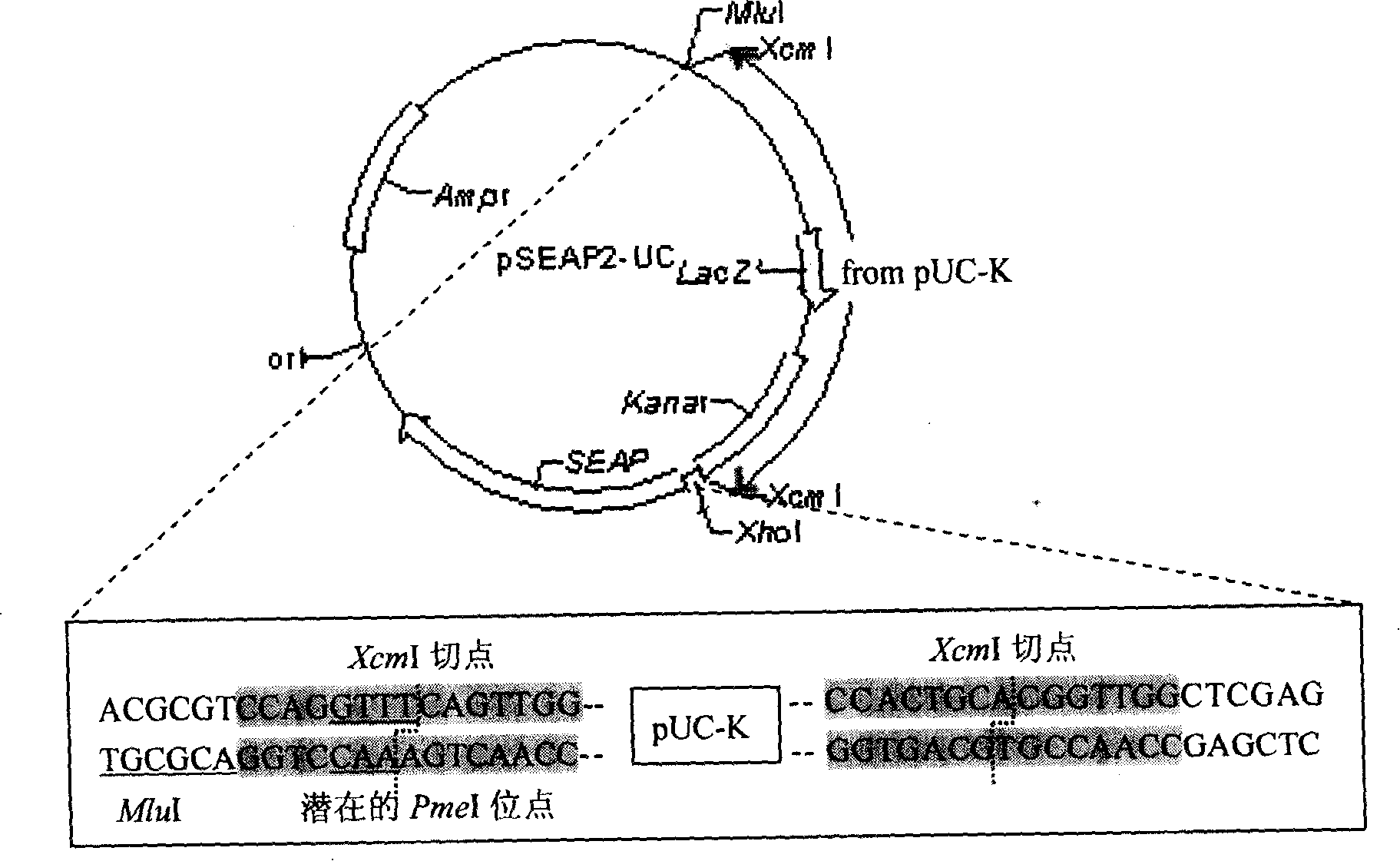T-carrier capable of directionally cloning promoter and studying its activity as well as constructing method thereof
A promoter and vector technology, applied in the field of genetic engineering, can solve the problems of high background of non-recombinant transformants, restriction of subcloning efficiency yield and ligation efficiency, inability to realize directional cloning, etc., and achieve the effect of improving positive cloning efficiency.
- Summary
- Abstract
- Description
- Claims
- Application Information
AI Technical Summary
Problems solved by technology
Method used
Image
Examples
Embodiment 1
[0051] Example 1: Preparation of T vectors pEGFP-T, pGL3-T and pSEAP2-T
[0052] 1. Preparation of XcmI cassette
[0053] According to the sequences of plasmids pUC18 and pUC-K, the primer sequences were designed as follows:
[0054] pUC-F: 5'-CGA AGATCT CCAG CAGTTGGAGACCAAGTTTACTCA-3';
[0055] pUC-R: 5'-CAA CTCGAG CCAACCGTGCAGTGGGACAGTTACCAATGCT-3';
[0056] pUC-KF: 5'-CGA ACGCGT CCAG CAGTTGGAGACCAAGTTTACTCA-3'.
[0057] The restriction endonuclease BglII, XhoI and MluI recognition sites inserted at the 5' ends of the three primers are marked with a single line; the XcmI enzyme recognition site is marked in italics; the XcmI recognition site of the primers pUC-F and pUC-KF It still contains the first half of the rare restriction enzyme site PmeI site, which is GTTT, and the last T will constitute the 3' protruding T obtained by XcmI enzyme cleavage, marked with a wave line, and used for directional cloning analysis of promoter PCR products.
[0058] The plasmid ...
Embodiment 2
[0064] Example 2: Screening and Efficiency Detection of Forward Cloning of T Vector pEGFP-T
[0065] Taq DNA polymerase was used to amplify the minimal promoter of chemokine receptor CXCR4, and the primers were designed according to the following principles: the 5' end of the downstream primer started with "ACCC", while the upstream primer did not start with "ACCC" beginning. In this way, only when the PCR amplification product is reversely connected with the above-mentioned T vector, the recognition site of the complete endonuclease PmeI is formed (GTTTAAAC), and the pEGFP-T, pGL3-T and pSEAP2-T vectors themselves do not have this recognition site point. Therefore, reverse linking clones can be removed by digestion with PmeI. Specific steps are as follows:
[0066] CXCR4 promoter primers were designed as follows:
[0067] CXCR4-F: 5'-TACCGACCACCCGCAAACAG-3'
[0068] CXCR4-R: 5'- ACCC TAACCGCTGGTTCTCCAGA-3'
[0069] The CXCR4 PCR product was ligated with the pEGFP-T, p...
Embodiment 3
[0070] Example 3: Functional detection of recombinant T vectors
[0071] Breast cancer cells MCF-7 were cultured in RPMI 1640 medium containing 10% FBS at 37°C, 5% CO 2 cultivated under conditions. One day before transfection, take well-grown cells, trypsinize and count, and adjust the cell concentration to 2×10 5 ml, add the RPMI 1640 culture solution of the above cells in a 24-well culture plate, so that the number of cells per well is 1×10 5 . Under the mediation of Lipofectamine 2000, the above three recombinant T vectors cloned with CXCR4 promoter were transfected respectively, and pEGFP-1, pGL3-basic and pSEAP2-basic plasmids were used as negative controls. The transfection amount of each plasmid was 1 μg / well, and the amount of liposome was 2 μl per well. After culturing for 5 hours, replace with fresh culture medium, at 37°C, 5% CO 2 After 24 hours, the cells transfected with recombinant pEGFP-T / CXCR4 were observed under an inverted fluorescence microscope, and mo...
PUM
 Login to View More
Login to View More Abstract
Description
Claims
Application Information
 Login to View More
Login to View More - R&D
- Intellectual Property
- Life Sciences
- Materials
- Tech Scout
- Unparalleled Data Quality
- Higher Quality Content
- 60% Fewer Hallucinations
Browse by: Latest US Patents, China's latest patents, Technical Efficacy Thesaurus, Application Domain, Technology Topic, Popular Technical Reports.
© 2025 PatSnap. All rights reserved.Legal|Privacy policy|Modern Slavery Act Transparency Statement|Sitemap|About US| Contact US: help@patsnap.com



